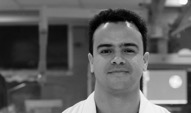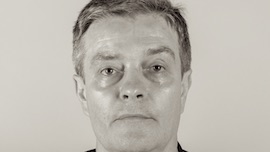
Simple Education essential guides Intracoronary Guidance in Complex PCI is the premier international course focusing on intracoronary guidance of procedures during Complex PCI. The course is run by leading and world renowned international faculty. This is the first course specialising in the use of intracoronary guidance in complex PCI, and builds for the experienced coronary interventionist on 7 years of courses which have been run, and quickly established as the leading global interventional course in state-of-the-art coronary physiology and intracoronary imaging.
This Intracoronary Guidance in Complex PCI course provides all you need to know to understand about the use of intra coronary physiology and imaging to support complex PCI. The courses is composed of several session including multiple cases presentations, live cases, and interactive learning sessions.
Prof Javier Escaned is Head of Interventional Cardiology Section at Hospital Clinico San Carlos (Madrid, Spain). He trained as a cardiologist the United Kingdom before moving to the Thoraxcenter / Rotterdam (The Netherlands), where he obtained his PhD degree in 1994. A skilled interventionalist with over 25 years of experience, he regularly serves as live case operator and educationalist in global events like EuroPCR, TCT or the ESC Congress. He is author of over 350 PubMed indexed scientific articles (h-index 58) on topics that include complex PCI in multivessel disease (principal investigator of SYNTAX II study), left main and chronic total occlusions, and secondary revascularization. His track record in coronary physiology includes being investigator on pivotal FFR trials like DEFER (1998), collaborator with Justin Davies in the validation and clinical implementation of iFR (since 2010), and developer of new methods for the assessment of microvascular and non-obstructive coronary disease. Recent / ongoing trials as Co-PI include ADVISE, ADVISE II, DEFINE FLAIR and ABSORB II PHYSIOLOGY, being investigator also in ILUMIEN I and IV, COMBINE and other studies on coronary imaging. Latest editorial contributions are the textbooks “Coronary Stenosis. Imaging, Structure and Physiology”, (co-editor Patrick Serruys) and “Physiological Assessment of Coronary Stenoses and the Microcirculation) (co-editor Justin Davies). Current or recent board positions in scientific societies include EuroPCR, EAPCI, EuroCTO and the ESC Working Group of Coronary Pathophysiology and Microcirculation. Some of his additional interests are philosophy, education and music.
Dr Enrico Cerrato is Consultant Interventional Cardiologist at San Luigi Gonzaga University Hospital in Turin, Italy. He completed his training as cardiologist in the Molinette University Hospital (Turin, Italy) and, subsequently, a fellowship in Interventional Cardiology at Hospital Clinico San Carlos, Madrid. Dr Cerrato has an important track record in the use of meta-analysis as a research tool, a statistical approach he trained on under the expert supervision of Dr Biondi-Zoccai. Dr Cerrato is one of the founders of CardioGroup (www.cardiogroup.org), a research network that has generated multiple studies on left main PCI, intracoronary physiology and imaging techniques, and spontaneous coronary dissection, among many other topics. An additional interest of Dr Cerrato is the assessment of real-world interventional cardiology practice, performed through internet-based surveys and tools. He is currently co-principal investigator in the PREDICT study which investigates the protective effect of ticagrelor against periprocedural microvascular damage in patients with diabetes.
Dr Carlos Collet Bortone completed his education as interventional cardiologist at the Dante Pazzanese Institute of Cardiology in Sao Paulo, Brazil in 2011 with training in cardiac computed tomography angiography at the Holy Cross Hospital, Florida, USA. Dr. Collet Bortone continued his education with a doctorate in Cardiovascular Sciences at the University of Amsterdam with his Ph.D. thesis focused on the expansion of the current indication of cardiac CT to patients with complex coronary artery disease. Currently practices as interventional cardiologist at OLV-Aalst, Belgium. Dr. Collet Bortone has published more than 80 peer review articles and his research focused on the integration of cardiac imaging and physiology.
Dr Mauro Echavarría Pinto is an Interventional cardiologist and currently works at “ISSSTE“ General Hospital in Querétaro, México. He trained clinically in the National Institutes of Health, in Mexico City, and in Hospital Clínico San Carlos, in Madrid, Spain. He holds a MSc degree in Research Methodology, Design and Statistics in Health Sciences from the Autonomous University of Barcelona, Spain, and a PhD from the University of Amsterdam, The Netherlands. He is an author of >50 peer-reviewed manuscripts mostly focused on the use of coronary physiology to guide the treatment of ischaemic heart disease.
Prof Robert-Jan van Geuns, MD, PhD (1966) started his medical training at the University of Leiden. Prof van Geuns was trained in Interventional Cardiology by Prof. Patrick Serruys at the Thoraxcenter, Erasmus University Medical Center, Rotterdam. Prof Robert-Jan van Geuns has been staff member at the Thoraxcenter, Rotterdam, The Netherlands since 2004 and was clinical director of the cardiac intervention lab from 2011 to 2013. He has been a member of the board of Dutch Cardiology Society from 2007 to 2014. He is a of the program committee of the EuroPCR since 2012. He is a Fellow of the American College of Cardiology and a Fellow of the European Society of Cardiology. His research focus is on coronary artery disease. He started his research in this field in 1996 and received his PhD in 2000 on the thesis: “Non-invasive coronary imaging with MRI and EBT. His current research focuses on new imaging techniques in cardiology for diagnostic applications and image guided interventions. Prof van Geuns was appointed associate professor in 2010 covering research in non-invasive cardiac imaging and percutaneous coronary interventions. As of June 2014 he is Professor of Interventional Cardiology with a special focus on the percutaneous treatment of coronary artery disease. He acquired several individual grants and is author of 247 papers, numerous abstracts and presented his research across all continents. He has been involved in research for bioresorbable scaffolds since early 2006 in multiple studies and has over 500 implants in clinical cases.
Dr Nieves Gonzalo was born in Madrid, Spain in 1976. In 2006 she got the degree of Cardiologist after her training in Clinico San Carlos University Hospital in Madrid. After finishing her specialisation she moved to Rotterdam in The Netherlands for a research fellowship in the Thoraxcenter, Erasmus University with the team of Professor Patrick Serruys. There, she worked mainly in intracoronary imaging techniques and bioabsorbable stents. In 2010 she obtained her PhD with the thesis “Optical coherence tomography for the assessment of coronary atherosclerosis and vessel response after stent implantation”. Currently she works in the Interventional Cardiology Department at Clinico San Carlos University Hospital in Madrid.
Dr Allen Jeremias, MD, MSc, is the Director of Interventional Cardiology Research and Associate Director of the Cardiac Catheterization Laboratory at St. Francis Hospital, Roslyn, NY. He is also a member of the Cardiovascular Research Foundation, New York, NY where he currently serves as the Director of the Physiology Core Laboratory. He completed his Medical training at The Cleveland Clinic Foundation, Stanford University School of Medicine, as well as Beth Israel Deaconess Medical Center, Harvard Medical School. Dr. Jeremias has numerous publications in the area of coronary physiology and intravascular imaging. |
 Prof Maciej Lesiak is Head of the 1st Department of Cardiology in Poznan Medical University and a cardiology consultant in Greater Poland province. He obtained medical diploma at the Medical Academy in Poznan (currently the Medical University) and at this university he gained further academic degrees and promotions. He received his doctorate in 1995 defending the work entitled Structure of the sinus node in healthy persons and patients with supraventricular rhythm disorders. His specialization is internal diseases and cardiology. Prof Maciej Lesiak is Head of the 1st Department of Cardiology in Poznan Medical University and a cardiology consultant in Greater Poland province. He obtained medical diploma at the Medical Academy in Poznan (currently the Medical University) and at this university he gained further academic degrees and promotions. He received his doctorate in 1995 defending the work entitled Structure of the sinus node in healthy persons and patients with supraventricular rhythm disorders. His specialization is internal diseases and cardiology.In 2001, he was a member of the team of Poznan cardiologists who prepared the first program for the treatment of heart attacks in Greater Poland province. In 2007, he became Associate Professor based on the assessment of scientific achievements and dissertation titled Primary coronary angioplasty in the treatment of acute phase of myocardial infarction. Early and long-term observation of 988 consecutive patients treated as part of the Greater Poland Province Program for the Treatment of Acute Coronary Wounds. Prof Lesiak became a Professor of medical sciences in 2016. Prof Lesiak has been a Member of the Board of the Working Group for Invasive Cardiology of The Polish Cardiac Society since 2001; Member of European Society of Cardiology since 2002, and a Committee Member of EuroPCR Program since 2009. Prof Lesiak has published over 140 original publications in magazines such as European Heart Journal, JACC, Cardiovascular Interventions, American Heart Journal, etc. |
 Dr Hernán Meja-Rentería is Interventional Cardiologist at Hospital Clinico San Carlos (Madrid, Spain). He graduated from the Medical School of Universidad del Valle (Colombia) and underwent specialty training in Cardiology from 2010 to 2015 at Hospital Clinico San Carlos, Madrid, Spain. Subsequently, he completed his subspecialty training as Interventional Fellow in 2017 at the same institution. Main areas of research include functional imaging and physiological assessment of coronary circulation. He has published numerous articles on coronary physiology, intracoronary imaging, and served as Deputy Editor in the recent textbook “Physiological Assessment of Coronary Stenoses and the Microcirculation) published by Springer. His main research interests are focused on coronary artery disease, physiology and imaging. Dr Mejía-Rentería played a key role in the design and implementation of the ongoing Coronary-Cerebral Connection (C3) study and will make the defense of his PhD thesis at the Universidad Complutense de Madrid in 2019. Dr Hernán Meja-Rentería is Interventional Cardiologist at Hospital Clinico San Carlos (Madrid, Spain). He graduated from the Medical School of Universidad del Valle (Colombia) and underwent specialty training in Cardiology from 2010 to 2015 at Hospital Clinico San Carlos, Madrid, Spain. Subsequently, he completed his subspecialty training as Interventional Fellow in 2017 at the same institution. Main areas of research include functional imaging and physiological assessment of coronary circulation. He has published numerous articles on coronary physiology, intracoronary imaging, and served as Deputy Editor in the recent textbook “Physiological Assessment of Coronary Stenoses and the Microcirculation) published by Springer. His main research interests are focused on coronary artery disease, physiology and imaging. Dr Mejía-Rentería played a key role in the design and implementation of the ongoing Coronary-Cerebral Connection (C3) study and will make the defense of his PhD thesis at the Universidad Complutense de Madrid in 2019. |
 Dr Richard A. Shlofmitz, MD, FACC is the Chairman of Cardiology at St. Francis Hospital, The Heart Center®, in Roslyn, New York. A pioneer in interventional cardiology, Dr. Shlofmitz has worked to advance the field, with a focus on optimizing outcomes with the development of Precision PCI. He is a founding co-director of the annual Intravascular Imaging and Coronary Physiology Workshop. Performing over 1,000 coronary interventions annually, he has one of the largest volumes of experience in PCI. He has the most clinical experience with orbital atherectomy and OCT world-wide. His clinical research interests focus on optimizing coronary interventions and he serves on multiple scientific advisory boards and clinical trial steering committees to further this mission. Dr. Shlofmitz has been one of the largest enrollers for multiple clinical trials, including TWILIGHT, ILUMIEN III, and Onyx, with more than 75 publications in peer-reviewed journals and was first to perform coronary intravascular lithotripsy (IVL) in North America as part of the DISRUPT CAD III trial. Dr Richard A. Shlofmitz, MD, FACC is the Chairman of Cardiology at St. Francis Hospital, The Heart Center®, in Roslyn, New York. A pioneer in interventional cardiology, Dr. Shlofmitz has worked to advance the field, with a focus on optimizing outcomes with the development of Precision PCI. He is a founding co-director of the annual Intravascular Imaging and Coronary Physiology Workshop. Performing over 1,000 coronary interventions annually, he has one of the largest volumes of experience in PCI. He has the most clinical experience with orbital atherectomy and OCT world-wide. His clinical research interests focus on optimizing coronary interventions and he serves on multiple scientific advisory boards and clinical trial steering committees to further this mission. Dr. Shlofmitz has been one of the largest enrollers for multiple clinical trials, including TWILIGHT, ILUMIEN III, and Onyx, with more than 75 publications in peer-reviewed journals and was first to perform coronary intravascular lithotripsy (IVL) in North America as part of the DISRUPT CAD III trial. |
 Prof Goran Stankovic is a Professor of Internal Medicine and Cardiology at the Faculty of Medicine, University of Belgrade, Head of the Department of Cardiology, Clinical Center of Serbia and Chief of Invasive Diagnostics and Interventional Cardiology. Prof Goran Stankovic is a Professor of Internal Medicine and Cardiology at the Faculty of Medicine, University of Belgrade, Head of the Department of Cardiology, Clinical Center of Serbia and Chief of Invasive Diagnostics and Interventional Cardiology. Prof. Stankovic was awarded Fellow of the European Society of Cardiology (FESC) in 2003, and Fellow of the American College of Cardiology (FACC) in 2005. He has been a member of European Association for Percutaneous Coronary Interventions (EAPCI) since 2007 and is currently a member of the EAPCI Nominating Committee. He has been one of the founding members and is currently the president of the European Bifurcation Club, and a member of the Asian and Indian Bifurcation Clubs. Professor Stankovic serves on the editorial boards of Journal of the American College of Cardiology, Eurointervention, European Journal of Cardiovascular Medicine, Advances in Interventional Cardiology Journal, and Heart and Blood Vessels – Journal of Cardiology Society of Serbia. For the consecutive years 2005-2014 Professor Stankovic was awarded Elite Reviewer for Journal of American college of Cardiology. In 2009 he received Simon Dack Award for outstanding Scholarship from the American College of Cardiology Foundation. |

This essential guide is an educational activity intended for an international audience, specifically interventional cardiologists and cardiologists. However, other healthcare professionals involved in the care of coronary artery disease (CAD) patients will also find this topical.
This 2 day course general admission pass which covers registration, meals, and refreshments. After course free access to online course resources including powerpoint images, course videos, and links to other Simple Education resources.
Intracoronary Guidance in Complex PCI provides all you need to know to understand how to implement intracoronary guidance using physiology and imaging into complex PCI cases.